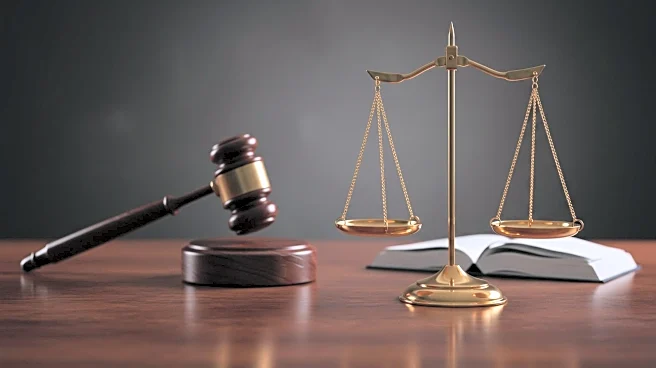What's Happening?
The 9th Circuit Court of Appeals has ruled against the use of expedited subpoenas under the Digital Millennium Copyright Act (DMCA) to identify internet users suspected of digital piracy. This decision affects studios and record labels that have relied on these subpoenas to combat illegal sharing of songs, movies, and TV shows. The ruling aligns with previous decisions from the D.C. Circuit and the 8th Circuit, which have led copyright holders to file lawsuits against unknown defendants before seeking subpoenas. The case involved Capstone Studios, which attempted to subpoena Cox Communications to identify users linked to illegal sharing of the film 'Fall.' The court decided that DMCA subpoenas are not permissible when the internet provider acts merely as a conduit and does not host the infringing material.
Why It's Important?
This ruling is significant for the creative industry, as it limits a tool that copyright holders have used to identify and pursue digital pirates. The Motion Picture Association and the Recording Industry Association of America have expressed concerns that this decision will hinder efforts to protect intellectual property and combat piracy, which they argue poses a threat to the U.S. economy. The ruling may lead to increased litigation costs for copyright holders, who will need to file individual lawsuits to identify infringers. This could impact the ability of smaller studios and artists to protect their work, potentially affecting revenue and the broader creative marketplace.
What's Next?
The decision may prompt copyright holders to seek legislative changes to the DMCA to better address digital piracy. Attorney Kerry Culpepper, representing Capstone Studios, has expressed hope that Congress or the Administration will take action to support copyright owners. The ruling also provides guidance for service providers and courts, potentially influencing future cases involving digital piracy. Stakeholders in the creative industry may need to explore alternative strategies to protect their intellectual property in light of this legal development.
Beyond the Headlines
The ruling highlights ongoing tensions between copyright enforcement and privacy rights. The court's decision underscores the need for a balance between protecting intellectual property and safeguarding individual privacy. This case may influence broader discussions on digital rights and the responsibilities of internet service providers in the context of copyright infringement.








